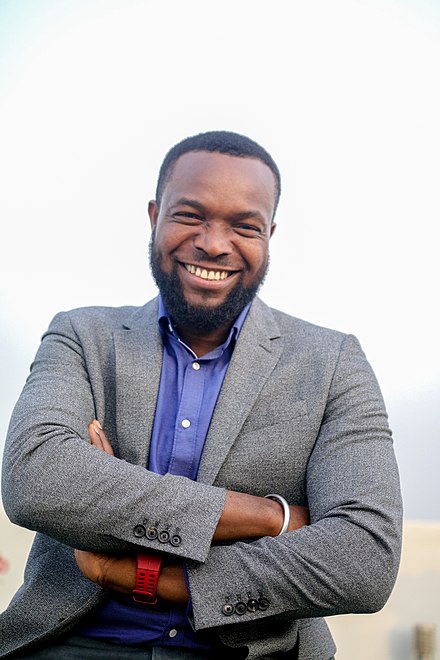The Minister of Communications, Innovation and Digital Economy, Dr Bosun Tijani, says Nigeria’s new two-billion-dollar broadband project will significantly boost Gross Domestic Product (GDP) growth.
Tijani stated this during the plenary on Smart Growth, Digital Leap hosted by IHS at the 31st Nigerian Economic Summit (NES #31) in Abuja on Monday.
He said the project would enable digital inclusion and position Nigeria as Africa’s next global technology exporter.
The minister described the plan as an audacious bet, noting that fibre-optic broadband and innovation hubs could unlock Nigeria’s long-anticipated digital wealth.
Tijani said the project, with a hybrid financing model of 49 per cent government and 51 per cent private sector, targets universal broadband coverage across all 774 local governments within three years.
“Connectivity is not optional. It’s the foundation of productivity,” he said.
He noted that, according to the National Bureau of Statistics (NBS), the Information and Communications Technology (ICT) sector already contributes about 15 per cent to Nigeria’s GDP. This is one of the highest in sub-Saharan Africa.
Tijani, however, lamented that broadband penetration remains around 50 per cent, leaving millions of Nigerians offline.
He added that a 10 per cent rise in broadband access could raise GDP by two per cent annually, in line with World Bank data on digital economies.
The minister said the two-billion-dollar plan, supported by partners such as the World Bank, IFC, and Africa Finance Corporation (AFC), aims to close that gap.
He explained that the initiative would also classify broadband as national critical infrastructure, which would fast-track private investment and reduce telecoms operational costs.
Tijani said one notable example of public-private collaboration was the IHS Towers innovation hub project, described as West Africa’s largest.
He said the hub was expected to train thousands of young Nigerians, offering incubation spaces and access to global investors — mirroring tech development models in India and Brazil.
The minister said the project’s economic impact would extend beyond the technology sector.
He cited economists’ estimates that improving rural broadband access could add up to 25 billion dollars annually to Nigeria’s agricultural output, supporting export diversification.
Tijani said through the 3 Million Technical Talent (3MTT) Programme, the government plans to train digital workers in Artificial Intelligence (AI).
Others are cloud computing, cybersecurity, and data analytics, with four per cent focusing exclusively on AI.
He stressed that Nigeria could not build a trillion-dollar economy without national connectivity.
The minister commended President Bola Tinubu’s administration for policies repositioning broadband as essential economic infrastructure through tariff reforms and regulatory clarity.
The Chief Executive Officer (CEO) of IHS Nigeria, Mr Mohamad Darwish, said Nigeria’s digital landscape reflects a mix of rapid growth, emerging technologies, and persistent challenges.
He said the country had made significant digital strides in the last decade, with internet penetration fuelling social media engagement, education, commerce, and entrepreneurship.
Darwish noted that small businesses now leverage digital platforms to reach wider audiences and expand faster than before.
He said major advances had been recorded in e-commerce, agency banking, and mobile payments, with startups exploring AI, machine learning, and other emerging technologies.
He added that initiatives such as 3MTT and innovation hubs across cities were upskilling young Nigerians and creating vibrant tech ecosystems.
“Today, our country stands tall as Africa’s most vibrant startup ecosystem and one of the world’s leading creative communities,” Darwish said.
He, however, noted that Nigeria still faces infrastructure and skills gaps, with poor rural internet access and persistent power challenges hindering digital inclusion.
Darwish added that digital literacy remained uneven, with many citizens unaware of the full potential of online tools.
He said bridging this divide would require sustained investment in public-private partnerships.
The CEO said government efforts to expand broadband coverage, combined with community-based digital skills programmes, could empower more Nigerians to join the digital economy.
He added that private sector investments in infrastructure, innovation, and talent could enhance productivity, improve efficiency, and promote inclusive growth.
Darwish said coordinated efforts to drive digital adoption across value chains would strengthen competitiveness and attract sustained investment.
He stressed that to build a smart economy, Nigeria must treat digital infrastructure, innovation, and talent as core growth drivers.
“We cannot build a prosperous and inclusive Nigeria by 2030 without digital technology at its core,” Darwish said.
He added that digital infrastructure had become the backbone of national productivity and that both public and private sectors must harness it for inclusive growth.
Darwish said the session aimed to highlight infrastructure gaps affecting Nigeria’s digital competitiveness and identify reforms to strengthen public-private partnerships for sustainable investment.
He said discussions would also focus on strategies to expand rural connectivity, lower broadband costs, and scale innovation ecosystems in sectors such as agriculture, education, health, and manufacturing.
The CEO added that building Nigeria’s digital skills and talent pipeline was vital to meeting industry demand and unlocking youth potential. (NAN)




